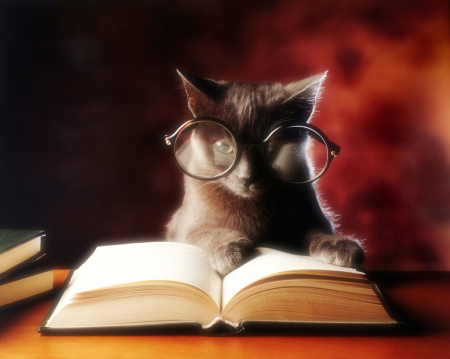R.L. Herron's Blog, page 12
April 8, 2015
Why Does Writing Have to Seem So Hard?
 Old Typewriter – photo courtesy Pixabay
Old Typewriter – photo courtesy Pixabay
When you’re having a difficult time writing and the words you want just don’t seem to find their way out of your head, you sometimes ask yourself … what’s the point?
I thought I was past my momentary writers block … but after only 1,500-or-so words I got stuck again this week.
No problem, right? I’ve been there before and worked my way out of it. The words eventually start flowing again.
So, I brewed a second cup of coffee, took a deep breath and stared at my computer screen. Typed a sentence. Deleted it.
Sipped my coffee. Wrote a new sentence and almost immediately deleted it. Paused. Rubbed my eyes. Scratched my head. Typed a third sentence. Deleted that one, too.
Repeated the whole sequence many times in the course of the next two hours and got some results I kept … a total of 27 words.
Less than one-quarter of a word per minute. Oh well. Been there, done that. I know it will eventually click. I just hope it does before my self-imposed deadline gets here.
At least I’m more environmentally conscious these days. I used to do all this using reams of paper.
Writing, ripping sheets from the platen and tossing crumpled paper pages from an old Royal or Smith-Corona until the wastebasket overflowed and threatened to engulf the room.
Royal? Smith-Corona?
You know, one of those tools youngsters only see these days in retro films (or in their grandparents’ closets). A typewriter.
Now I use a laptop. No paper waste, but the writer’s block is still writer’s block.
Sigh.
Most days, my desk is the kitchen table. I sit there (fortunately close to the coffee) pattering out whatever thoughts come into my head. Sometimes they actually coalesce in the form of a story.
Other times they’re solipsistic, self-centered ramblings that don’t make sense later even to me.
But when my thoughts fail to come together over a story it often feels like my characters all suddenly seem flawed and unlikable. Or sometimes not flawed enough.
At the same time, my story doesn’t seem to go anywhere … or it goes in too many directions at once.
If you self-publish, like I do, even when the words do come you can’t take it easy. There are so many other things you have to worry about.
Getting reviews. Managing your web site. Connecting with other writers. Maintaining a blog. Connecting with other readers. Posting Facebook messages. Crafting clever Twitter messages. Creating Goodreads giveaways. Designing business cards.
Building refrigerator magnets with my name on them (I don’t really do that … I just wanted to see if you were listening).
Not to mention trying to sell copies of the books I’ve written. That I do all the time.
Those are the times I’m most likely to ask myself … what the hell’s the point? Why do I work so hard at this blasted thing called writing? After all, I had a long career and retired. I’m supposed to relax and take it easy. Right?
Instead, I keep showing up, even with all my doubt, despair and anxiety over words that continue to seem slippery and elusive.
Sometimes getting the words right feels like I’m trying to push the Earth out of its orbit. Yet, I keep working at it. I bring it all to the page and keep pushing.
Why?
In all honesty, I don’t have any alternative. I’m a writer, so I show up and write … and hope for the best.
**********
My books have garnered some terrific reviews. You can see the stories I have available by using the Amazon link below.
You’re also invited to visit my web site, BROKEN GLASS, or like my Book of Face page. You can also follow my shorter ramblings on The Twitter.
**********
Comments posted below will be read, greatly appreciated and perhaps even answered.
Filed under: Award-Winning Fiction, Writers Block Tagged: award-winning writing, self-publishing, writer's block








March 27, 2015
What’s the Main Task of a Storyteller?
 The Reserve Beach in Punta Cana © R.L. Herron
The Reserve Beach in Punta Cana © R.L. Herron
I recently came back from Punta Cana, in the Dominican Republic (I know … tough duty, but someone’s got to do it).
My bride and I met our eldest son and his family there for a week. I enjoyed seeing them all and relished the opportunity it gave me to recharge my batteries. Now, back to business.
In my last post you heard me grouse again about my writer’s block. It’s safe to say most of that has passed. But I’m still struggling to get my latest novel written and edited by the end of May.
Why? Because I want to submit it to this year’s Readers Favorite contest for review.
Why Do I Bother?
I watched the movie “Birdman” here at home on Tuesday with my wife and youngest son.
Michael Keaton plays a former movie star/action-hero (Birdman) named Riggin Thomas, who opted out of the franchise and hasn’t had much movie success since.
The Thomas character has supposedly adapted the Raymond Carver story “What We Talk About When We Talk About Love,” for Broadway; writing and directing the play in the hopes it will revitalize his career.
One of my favorite scenes featured Edward Norton, who plays an actor named Michael Shiner, a not-so-very-likable-character. In this scene he defends Thomas to Tabitha Dickinsen (played by Lindsay Duncan), a smarmy theater critic he sees sitting in a bar.
“He’s taking a chance. He’s willing to lose everything for this. What are you willing to lose?”
I think Tabitha, a character name undoubtedly chosen for its witch-like associations, serves a twin narrative purpose.
The first is to serve as a convenient antagonist. Her character has apparently decided in advance to give the play a lousy review, so she embodies evil incarnate.
The second is to highlight the purpose real critics have served for as long as there has been a creative process: the need for validation. It’s something the Michael Keaton character desperately needs to preserve his own creative sanity.
It makes me wonder why any of us bother to create art, when we know there are people who will line up to tell us what we’re doing wrong. Does, as the movie suggests, fame or recognition play a role in the process?
Taking that a step further, do I write for the contest entry? Is that why I’m finding myself in a time crunch? It’s not like I’m making much money at it.
Why Do We Write?
George Orwell once said we write out of the “desire to seem clever, to be talked about, and to be remembered after death.”
While this might not be the most unselfish of motivations, it’s certainly a natural one.
Humans, for the most part, have a built-in need to make a mark on the world. We want to bring new things to life, to mold things into the image we have in our imaginations.
That makes the answers to the question … Why Do You Write? … as varied as the people asking it.
A writer expresses the rambling of his imagination, but he tries to do it in a way that lets you see it, too. This has always been the main task of storytellers and it’s why, every time we write, we leave a little bit of ourselves behind.
And, yes, we do it for the acknowledgement of the critics. It’s how we know we’re alive.
**********
My books have garnered some terrific reviews. You can see the stories I have available by using the Amazon link below.
You’re also invited to visit my web site, BROKEN GLASS, or like my Book of Face page. You can also follow my shorter ramblings on The Twitter.
**********
Comments posted below will be read, greatly appreciated and perhaps even answered.
Filed under: Author Review, Storytelling, Writers Block Tagged: book marketing, storytelling, writer's block

March 5, 2015
Why Do I Have to Write Today?
It never seems to fail. Just when I think things are going well, the ideas stop. My thousand-words-a-day mantra becomes Why do I have to write today? Even the podcast I’m working on has stalled. It feels like I’m climbing a mountain.
Writer’s block again.
I’m 32,000 words into my next novel, Street Light … the final book in my trilogy … and once again I’m stumped. Where are these characters going?
At the moment, I can’t answer that. I know where I want them to end up, but how are they going to get there?
I also have the questions for my podcast so many Gentle Readers submitted about the craft of writing, and I know how I’m going to answer them. But I can’t seem to get started.
The Creative Spark
I’ve read a lot of advice about how to spark creativity … and I’ve written about it here.
However, everyone’s creativity takes a different form, so advice that works varies from person to person. Creativity often involves play, digression, experimentation and failed attempts.
It doesn’t always look productive.
I’ve discovered that creativity can be a strange, elusive creature. Sometimes it’s a river flowing so fast I can’t keep up with it. At other times it feels like the river’s caked and parched, all dried up with life-giving water nowhere to be found.
That’s when I take time to explore, try to meet new people (or old friends I haven’t seen in a long time, like I did last week), or read a book by an author I enjoy. Sometimes I just listen to music I like (for me, that’s Bob Seger or Creedence, thank you).
If you’re anything like me, you’re often set on a specific way of doing things and that’s not always good for creativity. Creativity is all about those new, unexplored ideas … and you can’t explore new ideas if your mind is closed by impossibilities.
I find doing something just a little different can set off a creative spark and generate fresh ideas I hadn’t thought about before.
Follow My Interests
Instead of focusing on what I “ought” to be doing, I allow myself to wander. Sometimes by buying an odd book, poking around the internet, or exploring an unusual place.
I’ve always been an avid reader. Some authors claim they can’t read while they’re writing, but I don’t try to curb my reading impulses. Right now I’m discovering everything that new friend Brad Meltzer has ever written about political intrigue. I find good writing is inspiring, all by itself.
I’ve found, too, that reading their stories aloud to my grandchildren (or having them read to me) inspires me, sets a good example and just might inspire them, too … which is a very good thing.
Besides my stories, one of the main outlets I have for my creative impulses is this blog. This is where I collect many of my favorite quotations, intriguing passages from books I’ve read, stories I’ve heard from friends and questions that plague me.
I used to worry that writing on my blog would drain me of ideas. But I’ve found the more I create, the more I want to create.
Enjoy Failure
G. K. Chesterton wrote, “If a thing is worth doing, it is worth doing badly.” Besides putting a smile on my face, discovering this catchphrase made a huge difference in my approach to creativity. Telling myself I can enjoy the “fun of failure” made me much more light-hearted (although my lovely bride wouldn’t always agree).
I just let ideas flow. You can do this, too. Don´t try to censor yourself or worry about editing, no matter how silly the ideas may be. It’s important to keep an atmosphere of openness when trying to generate ideas.
It’s the same philosophy I use when I write. Get the ideas down. Fast. I can sort them later and determine which ones are best.
Relax and Play
If there’s any one thing I would always recommend to overcome writer’s block, it’s to go out and do something with friends or family. Don’t dwell on writing. Just relax and have a lot of fun.
Doing this for an evening, a day, or a week, can recharge not only your creativity but also your motivation and general sense of well-being. You will find this is actually a great use of your time. Your creative juices will flow again … plus you’ll also get to enjoy those wonderful friends and family members.
I’m off now, taking my own advice. I’ll let you know if it works.
**********
My books have garnered some terrific reviews. You can see the stories I have available by using the Amazon link below.
You’re also invited to visit my web site, BROKEN GLASS, or like my Book of Face page. You can also follow my shorter ramblings on The Twitter.
**********
Comments posted below will be read, greatly appreciated and perhaps even answered.
Filed under: Award-Winning Fiction, Writers Block Tagged: self-publishing, writer's block

February 16, 2015
What Storytelling Techniques Do You Use?
Storytelling is at the core of who we are as human beings. I’m convinced we’ve been doing it since our Neanderthal beginnings. Still, as ingrained as it may be to the human psyche, it takes a concerted effort to do it well.
There’s a difference between just relating a story, and telling an engrossing tale people will remember. It’s something every author, whether traditional or indie, needs to understand.
Sadly, many wannabes overlook some of the basic techniques.
Set the Stage
When you’re writing fiction, it’s important to set the stage. Tell your readers the place and time the story takes place. They need to know enough of the context so they can understand the story.
It was late August, 1962, when I first saw Albert Parker. After all this time I still remember the year quite distinctly. It was my second teenage summer and, like discovering I had a sexual identity, it was a part of life’s first great transition. I had been waiting months for something special to happen, something magical. Something like having Marilyn Monroe show up on my doorstep.
Show, Don’t Tell
One of the most important lessons to learn as a writer is how to show your story, instead of just telling it. Give us a visual example and make us see it and feel it.
All our senses contribute to a story and help make the experience realistic, as well as entertaining. Use that knowledge, and appeal to all of your readers’ senses.
The day started as a humid, hurt-your-lungs-on-a-deep-breath morning. A blistering sun was rising over the railroad switching yard at the far end of the street. Its red-orange glare filtered through exhausted-looking trees, while sinuous heat ribbons shimmered over motionless freight cars, their rusty shapes defined like so many slumbering beasts.
I was already sitting on the curb under a big oak tree, trying to find relief in occasional humid puffs of air. A battered gray panel truck pulled up across the street, and signaled its stop with a tortuous squeal. An angular middle-aged man slowly unwound from the driver’s seat. Garish sunlight lit the edges of his hair. It made halos of his tight, graying curls and gleamed brightly from the center of his balding crown.
Plot and Conflict
I won’t spend much time talking about plot, other than to say it’s important to construct one because it’s true, even if you want to break or bend the rules, that there should be a beginning, middle and an end to your story.
More importantly, what’s the conflict? What leads up to it? How will it be resolved? You need to make sure to keep the tension going and leave the audience wanting more with each chapter. However, readers should feel satisfied when the story ends, so don’t forget some sense of closure.
Point of View
Also consider point of view. Would the whole story, or even just a chapter, have a more emotional appeal if it was told through the eyes of a child? How would multiple points of view affect the telling of the story?
From my earliest memory all our neighbors said they were glad I wasn’t like my big brother. I never knew how to answer them when they said that. Albert was always there for me. What was wrong with that?
Use a dynamic character. This is a character that is changed by the conflict of the story. Readers love to see the reformed sinner find his way to something akin to success or redemption.
Realistic Dialogue
By all means, use realistic dialogue. I can’t stress this enough. Readers immediately lose focus when they hear something that sounds odd or out of place.
So, pay attention to the dialogue you write. Don’t throw readers out of the story.
Albert put his face next to mine and whispered, “You tell anyone, Paulie…anyone,” he made a cutting motion across his throat with his good hand, “you’ll wish your Momma never bothered to have you.”
“Ooh, watch me, I’m shaking.”
There were still sparks in Albert’s eyes. “Do you think I’m kidding?” For a moment, I thought the rest of my day was about to become very bad indeed.
“I swore, didn’t I?”
“Just making sure,” Albert said.
Tip 1: Read the dialogue you’ve written out loud when editing, to hear if it sounds realistic. If you stumble over it, chances are your reader will, too.
Tip 2: Learn to eavesdrop on conversations around you, to hear how people actually talk. No, you’re not trying to learn all their secrets. You do it to understand how they actually use their words to communicate.
You might be surprised to know real conversation is not at all like your English teacher told you when she had you diagramming those sentences (Sorry, Miss Kujala, but it’s true).
Always keep in mind that readers want to be moved by what they’re reading. Understand what emotions your story invokes in the audience. Then, pull on those emotions, because the stronger you make your story the more effective it will be.
Best-selling thriller writer Brad Meltzer once said that, as a writer, you’re trying to look through someone else’s eyes. I think when you do it well, the reader gets to enjoy the view, too.
**********
The text samples above came directly from my award-winning novel, REICHOLD STREET.

Reichold Street
by R.L. Herron
Giveaway ends March 01, 2015.
See the giveaway details
at Goodreads.
**********
My books have garnered some terrific reviews. You can see the stories I have available by using the Amazon link below.
You’re also invited to visit my web site, BROKEN GLASS, or like my Book of Face page. You can also follow my shorter ramblings on The Twitter.
**********
Comments posted below will be read, greatly appreciated and perhaps even answered.
Filed under: Award-Winning Fiction, Self-Published, Storytelling Tagged: award-winning writing, book marketing, storytelling

February 6, 2015
Why Review Your Own Blog?
 For Those Too Young to Remember … Yes, That IS a Telephone
For Those Too Young to Remember … Yes, That IS a Telephone
Assuming you have a blog (and if you’re an indie writer, you really should), the simple answer is … it’s important.
I can hear you saying now, “Why? I suppose you’re going to tell me to be sure of my content, right? I mean, everywhere you turn these days someone is telling you content is king. OK. That’s all well and good … so what else is new?”
Content is NOT Everything
Don’t get me wrong. Content is important. People aren’t going to stop more than once to read what you say if it isn’t up to date, factually correct and relevant.
But that’s not the entire story. Blog visitors are usually looking for something more than simple content. Most of the time, what brings people back to any blog is not something they can easily put their finger on … but will know immediately when it’s not there.
Beyond simple writing quality and a trust in the accuracy of your information, your platform (your blog and, hopefully, your website) should convey your personality.
Because it’s that intangible resonance that only comes when you share a piece of yourself that gives readers faith in their connection with you, and brings them back … emotion.
That brings up the most important question you should answer about blogging. Why do you do it? Is it just to hear yourself rant, or do you really have something to say?
This particular blog is part of my platform, and I do it to share information with other author wannabes about the things I learn about the marvelous world of indie publishing.
But I readily admit that isn’t all there is to it. I also hope to educate folks about the fiction I write.
Is it Interesting?
I try to make my posts fact-filled and interesting … and I always ask myself two questions: (1) would I be embarrassed if everyone I know reads this, and (2) is this content WORTH sharing?
I also try to make sure posts aren’t political or religious in nature. A very wise man told me, years ago, “When you’re out with a group of friends, never discuss religion or politics. If you do, you may come home with fewer friends, or none at all.”
(Thanks, Pop).
Not that I don’t have opinions. Everyone does. That’s the point.
Don’t antagonize people. Make them think … omigod, yes, by all means, make them think … but don’t overdo it.
If You Want Readers, You Have to Be Interesting
I also ask myself will this interest my readers? After all, there’s a lot out there competing every day for a few precious moments of your time. It’s a good point to remember. If someone is visiting your site they’re there for YOU – so give them what they want. Make sure your personality is on display.
I always try to do that, and sometimes I even get it right.
Next Up
One of the things I’m going to try next is an on-camera interview, because it’s another proven way to connect with readers. When Stephen King released Full Dark, No Stars he did a live video interview, which you can view here.
I’m going to do that, too, except I’m not going to do it live. I’m going to have my son videotape me answering questions.
Where will the questions come from? Well, I could always write them myself, but I think it’s a good idea to get a few from you, too. You’re more likely to ask me things I never thought of before.
I’ve already commented on a few social media sites that I plan to record the interview, and I’m soliciting questions. When people have responded, I’ll tape myself answering, upload the video to YouTube, embed it on this blog and link it to The Twitter and The Book of Face.
I hope to find a lot of folks interested in a chance to peer into the dark, cluttered recesses of my occasionally creative mind.
In the end, it’s all part of gaining that critical exposure I need, as an indie trying to sell his books.
You Must Be Part of the Social Media Community
It’s true in the regular publishing world, too … before you can sell your books, you have to get them noticed. Major publishers have bigger budgets than most indies (mine is a few pennies above zero, unless I want to acquire a sizeable amount of debt), but their focus is the same.
Get the word out.
They expect you to have a platform. So, whether it’s a blog like this, on the Book of Face, The Twitter or someplace like Pinterest or Goodreads, as an indie you need to share your story.
Remember, don’t merely shout buy my books! Review other writers and introduce your readers to works you admire.
Be helpful, be creative, be fun. Be a friend. Plan a Goodreads book giveaway, like the one below. Let other writers introduce your work to their fans. There’s strength in numbers.
Now, I’m off getting ready to prepare my video … and I’m waiting to hear your questions.
**********

Reichold Street
by R.L. Herron
Giveaway ends March 01, 2015.
See the giveaway details
at Goodreads.
**********
My books have garnered some terrific reviews. You can see the stories I have available by using the Amazon link below.
You’re also invited to visit my web site, BROKEN GLASS, or like my Book of Face page. You can also follow my shorter ramblings on The Twitter.
**********
Comments posted below will be read, greatly appreciated and perhaps even answered.
Filed under: Book Promotion, Branding, Market Your Book Tagged: book marketing, using social media

January 21, 2015
Why Do Reviews Matter?
It might sound simplistic to ask whether reviews really matter. Every author knows they���re important but I���d venture to guess every indie author who goes through the process of seeking them ends up asking the same question.
Why is this so hard?
Getting reviews can take a significant amount of time, effort and money ��� and as an indie doing it all yourself, with no publishing house support, you���re bound to ask yourself whether it���s all worth it. Yes, it really is, for one very good rea...
January 7, 2015
Do You Still Make Resolutions?
I gave up making New Year resolutions a long time ago. Couldn’t see the sense in any of it. I never managed to keep most of them anyway, despite my best intentions.
The only one I ever came close to keeping was my promise to go on telling stories, as long as I could. The artistic side of me knew I could keep that one.
I’ve always doing enjoyed creative things, and the ancient art of storytelling is especially well suited to artistic exploration. No special equipment is needed beyond the abilit...
December 31, 2014
How Do You Deal With Criticism?
I took a look at all the things I’ve rambled on about this year and discovered I’ve talked about just about every aspect of indie writing and publishing … except one.
Criticism
If you really want to be a writer, you’d better get used to it. I don’t care who you are in the literary world, someone, somewhere is going to criticize your work.
When Stephen King’s book The Shining was published in 1977, a reviewer at The New York Times called him “a writer of fairly engaging and preposterous claptrap....
December 23, 2014
Where Does Emotion Come From?
About this time every year I start getting nostalgic.
Usually, it’s just a reaction to exhaustion after trying to get all the holiday things done around the house.
It’s tough getting ready for company, while keeping my lovely bride from throwing things in my direction when I’m late doing my share of the housecleaning.
Sometimes it’s just a nod to my own mortality, the specter of which raises its head more frequently the older I get.
Often, being the morbid sentimentalist I am, my nostalgia se...
December 13, 2014
Why Give Books for the Holidays?
Last weekend I spent Saturday afternoon at the public library. Big deal, you say. It’s not like you just spotted a new comet. Lots of people go to the library, every day of the week.
You’re right, of course, but last Saturday, unlike most days with just a smattering of people, there was a crowd, which was a particularly nice thing to see.
Along with a lot of other local authors, I helped fill the lobby of the Orion Township Public Library. We were there with our wares, each of us hoping to se...










